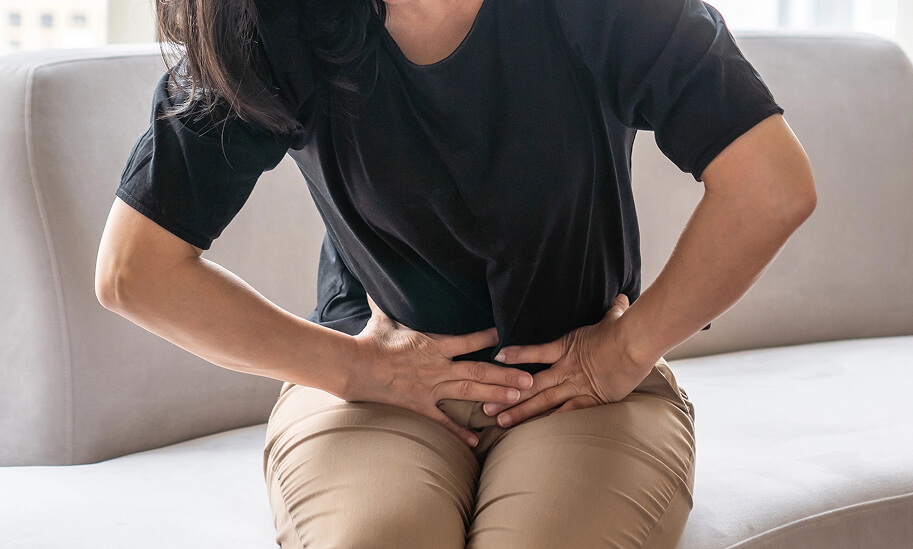Pelvic pain is a common yet often overlooked issue, affecting individuals of all ages, particularly those experiencing joint or muscle discomfort. Understanding the connection between water intake and pelvic health can open new avenues for relief—especially for those looking for non-invasive solutions.
What Is Pelvic Pain?
Pelvic pain is a common yet often misunderstood condition that can affect both men and women. It refers to any discomfort felt in the lower abdomen or pelvic region, typically from the hips to the groin and lower back. While pelvic pain is often associated with conditions such as reproductive health issues, it can stem from a wide range of factors, many of which are musculoskeletal or related to the body’s joints and tissues.
Types of Pelvic Pain
- Acute Pelvic Pain: This type of pain is sudden and often intense. It can be linked to injury, infection, or a medical emergency.
- Chronic Pelvic Pain: Persistent discomfort that lasts for months or even years. Chronic pelvic pain is often linked to conditions like pelvic floor dysfunction, joint problems, or nerve irritation.
Common Causes of Pelvic Pain
- Musculoskeletal Issues: Pain from muscles, ligaments, or tendons in the pelvic area.
- Inflammation: Conditions like arthritis or bursitis can lead to pelvic discomfort.
- Nerve Compression: Nerves in the pelvic region may become pinched or inflamed, leading to pain.
- Post-Surgical Discomfort: Recovery after surgery in the pelvic or hip region can contribute to pain.
Pelvic pain is complex and varies significantly in both causes and experiences, often requiring personalized treatment plans. While typical treatments focus on physical therapy or pain management, hydration is frequently overlooked as a potential solution.
The Link Between Hydration and Pelvic Pain
Hydration plays a vital yet often underappreciated role in pelvic pain management. When the body is dehydrated, muscles and tissues lose their elasticity and ability to function optimally, leading to stiffness and discomfort. This is particularly evident in the pelvic region, where dehydration can exacerbate muscle spasms, joint stiffness, and inflammation—key contributors to pelvic pain. Additionally, dehydration can impair circulation, reducing the flow of oxygen and nutrients to tissues, which hampers recovery and healing processes. The pelvic area, especially in cases of post-surgical recovery or arthritis, may become more sensitive when fluid intake is inadequate. Proper hydration helps to maintain the health of connective tissues, reduces muscle tension, and supports the lubrication of joints. It also aids in flushing out toxins that could contribute to inflammation, indirectly alleviating pelvic discomfort. While not a cure-all, increasing water intake can be an effective, non-invasive strategy to manage pelvic pain.
Does Drinking More Water Help Pelvic Pain?
Drinking more water can help reduce pelvic pain by addressing underlying causes like dehydration-induced muscle spasms, inflammation, and joint stiffness. Chronic dehydration can affect the soft tissues and joints in the pelvic area, making them more prone to discomfort. Water is essential for maintaining the lubrication and flexibility of joints and tissues, which is crucial in preventing unnecessary tension and pain. Additionally, staying hydrated supports kidney function and overall fluid balance, which can reduce urinary discomfort or related pelvic pressure. While hydration alone might not resolve severe pelvic pain, it plays an important role in enhancing tissue health and easing discomfort, especially for those dealing with musculoskeletal or post-surgical issues.
Benefits of Drinking Water for Pelvic Health
- Improved Joint Lubrication: Staying hydrated helps maintain the viscosity of synovial fluid, which lubricates the pelvic joints, such as the hip and sacroiliac joints. This can reduce friction and discomfort, particularly for individuals dealing with arthritis or post-surgical recovery.
- Reduced Inflammation: Proper hydration can help lower systemic inflammation. When the body is well-hydrated, it is better able to flush out toxins and reduce inflammation in the pelvic muscles, tendons, and ligaments, providing relief for those with chronic pelvic pain.
- Enhanced Muscular Function: Dehydration can lead to muscle stiffness, spasms, and cramps. Drinking sufficient water supports the proper function of muscles in the pelvic region, preventing tightness that can contribute to pain.
- Support for Pelvic Floor Health: Hydration is crucial for pelvic floor function. Proper fluid levels allow the muscles in the pelvic floor to contract and relax effectively, helping prevent pain from conditions like pelvic floor dysfunction or urinary urgency.
- Optimal Circulation: Water promotes healthy blood flow, which is critical for tissue healing and reducing discomfort. Better circulation in the pelvic area can reduce pressure on nerves and muscles, improving overall pelvic health.
- Aid in Urinary Function: Adequate water intake prevents dehydration-related urinary retention, which can cause pelvic pressure and discomfort. Staying hydrated helps ensure regular urination and reduces the risk of urinary tract infections, which can contribute to pelvic pain.
When to Seek Professional Help for Persistent Pelvic Pain
Persistent pelvic pain that does not improve with lifestyle changes, hydration, or at-home remedies may signal an underlying condition requiring professional attention. If the pain interferes with daily activities, such as walking, sitting, or sleeping, it is important to seek a healthcare provider’s expertise. Additionally, if pelvic pain is accompanied by other symptoms, like unexplained weight loss, fever, difficulty urinating, or blood in the urine, these could be signs of an infection, hernia, or other serious conditions. For individuals with a history of pelvic surgery or injury, any new or worsening pain should be evaluated promptly. A thorough assessment, including imaging or physical exams, can help pinpoint the exact cause and determine an appropriate treatment plan. Consulting an orthopedic or pelvic health specialist is essential for tailored pain management strategies and to prevent further complications.
In Conclusion
While staying hydrated can be a simple yet effective part of managing pelvic pain, it’s important to remember that it may not be a cure-all. Pelvic pain can stem from a variety of causes, and understanding the role of hydration in your overall health is essential. If you continue to experience persistent discomfort or if your symptoms worsen, don’t hesitate to seek professional help. Our team at SFHips is here to provide expert guidance and treatment options tailored to your needs. To learn more about how we can help, visit us or call (415) 530-5330 to schedule an appointment today.









